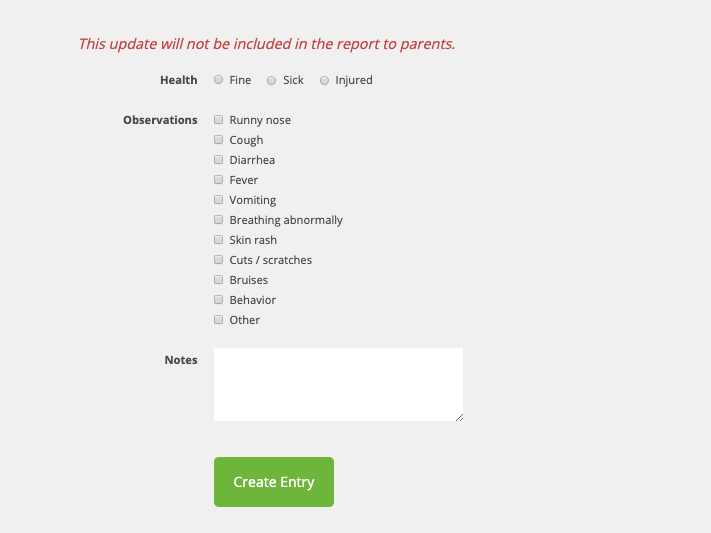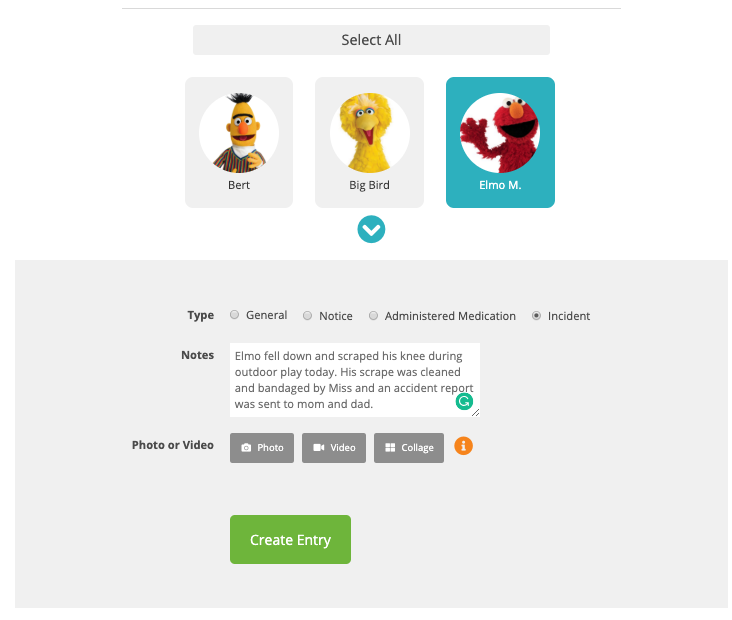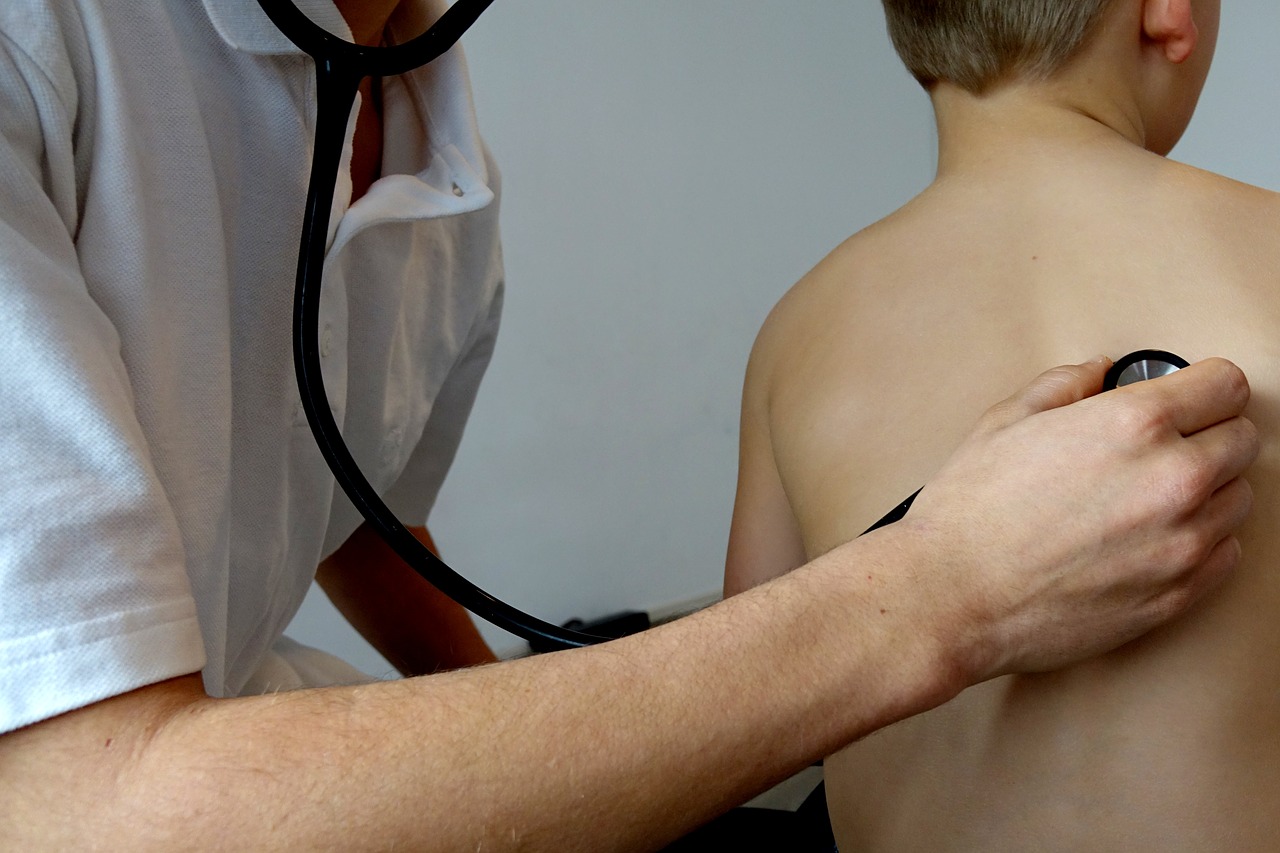Important Preschool Health Records
Did you know that toddlers put their hands and objects into their mouths an average of 40 times per hour?
Sometimes, it can be difficult to identify whether a child is sniffling because they have a common cold, or if it is an allergic reaction to something in their environment. It is difficult for teachers to come to a proper conclusion on a child’s health (and they really shouldn’t!) without the input of parents and their pediatricians.
Up-to-date health records are an important part of a child’s personal records at your child care center. Administrators and teachers need to be aligned on this not only because it is required by law, but because it gives parents peace of mind knowing that the children’s health is a priority at your center.
In this article, we will go over establishing a health policy, keeping parents in the know, and best practices for record-keeping and health-related documentation. These steps will contribute to ensuring that your center has all its bases covered when it comes to health and safety.
Child Care Health Policy
Having a consistent way to communicate and track each child’s health at your center is crucial to get parents, teachers, and pediatricians on the same page. Centers with a clear health policy can avoid a difficult situation where a parent is accusing your center of causing their child’s illness.
Enforcing a health policy helps to create a safe environment for all children. While each center is different, here are some things to include in your policy:
- Immunization records from an approved health professional
- Non-emergency accident documentation procedure
- Notes on allergies
- Daily health documentation
- Exclusion policy for certain health conditions
- Infection control and hygiene procedures
- Closures in the event of a pandemic
Making sure that parents are aware of when a child needs to stay at home is key to avoid the spread of illnesses at your center.
Clear Parent Communication
Parents will naturally be concerned when their child is ill. The first few months of attending preschool is usually the most challenging for families. The reason for this is simple. When young children come into a preschool setting, they are exposed to a new environment, new kids and new activities. Getting sick is a very natural part of developing the immune system of a young child.
Despite understanding why their child is sick, the experience can still be a pretty anxious one for parents. The rise in frequency of sickness can be alarming if not documented and communicated properly.
Daily documentation of any abnormal reactions is necessary to keep tabs on a child’s health. Building strong relationships with families can greatly minimize the stress involved! Teachers should be vigilant in logging reactions as they may come in handy when a family is working with a pediatrician to diagnose an allergy.
Best Practices for Child Care Health Reports
Every single child that is enrolled with the center should have a profile that indicates all the important information on that child. Health notes should be easily accessible in one place. This is so that every teacher has access to this information and there will be minimal confusion when it comes to things like dietary restrictions or exclusions from certain activities.
There are four things to keep track of when it comes to a child’s health: immunization records, known allergies, ongoing health notes, accidents and injuries. Let’s take a deeper dive into each component as they are slightly different from each other.
Immunization Records
Most states require child care centers to keep track of the children’s immunization records and schedules. That said, the requirements may be different depending on which state you are in.
First, be aware of your state’s requirements. Once you have this information, work with parents during the enrolment process to gather all the necessary documentation for their child’s personal profile.
Some examples of key vaccinations that states require children to have are:
- Diphtheria/Tetanus/Pertussis (DTaP/DTP/DT/Td/Tdap)
- Polio
- Measles, Mumps, and Rubella (MMR)
- Hepatitis A and B
- Varicella
These schedules are dependent on the child’s birth date and determined by the pediatrician and families. Depending on when a child enrols are your center, you should have a way to keep track of past vaccinations, future due dates and when you will need to update these records.
A child care app allows you to compile all this information in once place so you have an overview of the necessary documents and build your own schedule at the center.
Known Allergies
A child’s experience in child care can be key to uncovering allergies. Allergies vary from child to child and come in a variety of forms and severity. They can be seasonal, respiratory, food-related, skin-related or even a one-off occurrence like a bee sting. These are important to keep track of to avoid unnecessary complications. Teachers should be vigilant in observing the child’s reaction and work closely with families if they suspect any allergies.
Documenting these observations on the daily will give both teacher and parents enough of evidence to have a more in-depth conversation with the child’s pediatrician.
Ongoing Health Documentation
In child care, there are many transitions where teachers work with a group in different shifts. Besides clear external communications with families, teachers have to have clear internal communications with each other.
If a child was not feeling well halfway through the day, it is key that the next teacher be informed so that they can keep an eye on the child. A good way to ensure that the message is delivered is to log it in a “Health” memo.

Regardless of whether it is the usual teacher working the afternoon shift, or if it is a substitute teacher taking over, they should be well-informed and prepared to have a conversation with parents about a child’s health if need be.
Some apps have a specific Health section that facilitates this internal communication. With all the things that teachers have to pay attention to during busy transitions, it’s good to have a place to truth to reference.
Accidents and Injuries
Young children play actively and accidents are unavoidable. You should have a clear process for logging accidents and injuries so that there is no ambiguity in what happened. Make sure that parents are clear on what happened if their child is hurt.

Logging this as part of the child’s daily report and sending parents an incident form is a good way to keep everyone in the know.
Conclusion
Tracking health and safety is a very important part of running a quality child care and building a trusting relationship with the families that you work with. We hope you managed to get some useful tips from this article. Do you have any strategies at your center that we didn’t cover? Let me know in the comments.
Fill out the form below to learn more about how HiMama can help you track health info at your childcare center!
Related Posts
- Importance of Health and Safety in Early Childhood
- Cold & Flu Season: The Early Childhood Director’s Guide
- How Child Care Centers Manage Allergies
- Preparing Kids for Emergencies
- What Child Care Safety Policies Do I Need to Be Compliant?
- Developing an Emergency Disaster Plan for Child Care Centers



